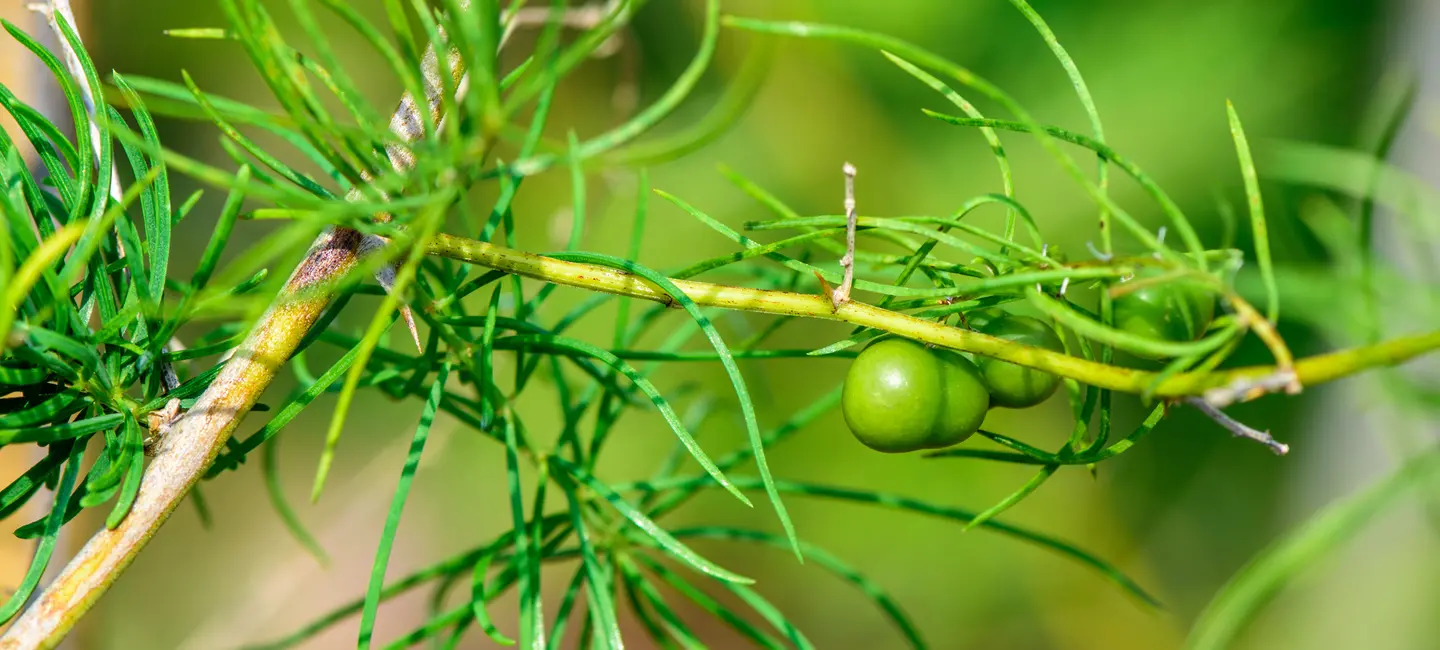
Asparagus racemosus is a woody, climbing plant used in Ayurvedic medicine. It's found in India, Sri Lanka, Asia, and Australia. It's considered endangered.
Asparagus racemosus might have antioxidant and antibacterial effects. It might also stimulate the immune system.
People use Asparagus racemosus for athletic performance, diabetes, HIV/AIDS, lactation, and many other purposes, but there is no good scientific evidence to support these uses.
Don't confuse Asparagus racemosus with Asparagus officinalis, which is the type of asparagus that is commonly eaten as a vegetable.
Is It Effective?
There is interest in using Asparagus racemosus for a number of purposes, but there isn't enough reliable information to say whether it might be helpful.
Is it Safe?
When taken by mouth: Asparagus racemosus is possibly safe. Doses of 500 mg daily have been used safely for up to 8 weeks.
Special Precautions & Warnings:
Pregnancy and breast-feeding: There isn't enough reliable information to know if Asparagus racemosus is safe to use when pregnant or breast-feeding. Stay on the safe side and avoid use.
Allergy to onions, leeks, and related plants: Asparagus racemosus might cause an allergic reaction in people who are sensitive to other members of the order Asparagales including onions, leeks, garlic, and chives.
Lithium
Interaction Rating=Moderate Be cautious with this combination.
Asparagus racemosus might have an effect like a "water pill." Taking Asparagus racemosus might decrease how well the body gets rid of lithium. This could increase how much lithium is in the body and result in serious side effects. Talk with your healthcare provider before using this product if you are taking lithium. Your lithium dose might need to be changed.
Water pills (Diuretic drugs)
Interaction Rating=Moderate Be cautious with this combination.
Asparagus racemosus can decrease potassium levels. "Water pills" can also decrease potassium levels. Taking Asparagus racemosus along with "water pills" might make potassium levels drop too low.
There are no known interactions with herbs and supplements.
There are no known interactions with foods.
There isn't enough reliable information to know what an appropriate dose of Asparagus racemosus might be. Keep in mind that natural products are not always necessarily safe and dosages can be important. Be sure to follow relevant directions on product labels and consult a healthcare professional before using.
Aheruballi, Asparagus, Asparagus Fern, Asparagus Root, Asperge des Indes, Asperge Indienne, Asperge Sauvage, Asperges Racemosus, Buttermilk Root, Chatavali, Climbing Asparagus, Espárrago Racemosus, Espárragos Racemosus, Indian Asparagus, Inli-chedi, Kairuwa, Majjigegadde, Mang Tay, Narbodh, Norkanto, Philli-gaddalu, Satavari, Sataver White, Sataver Yellow, Satawar, Satawari, Satmooli, Satmuli, Shatamuli, Shatavari, Shatmuli, Shimaishadavari, Sitawari, Sparrow Grass, Toala-gaddalu, Water Root, Wild Asparagus.
Information on this website is for informational use only and is not intended to replace professional medical advice, diagnosis, or treatment. While evidence-based, it is not guaranteed to be error-free and is not intended to meet any particular user’s needs or requirements or to cover all possible uses, safety concerns, interactions, outcomes, or adverse effects. Always check with your doctor or other medical professional before making healthcare decisions (including taking any medication) and do not delay or disregard seeking medical advice or treatment based on any information displayed on this website.
© TRC Healthcare 2024. All rights reserved. Use and/or distribution is permitted only pursuant to a valid license or other permission from TRC Healthcare.
